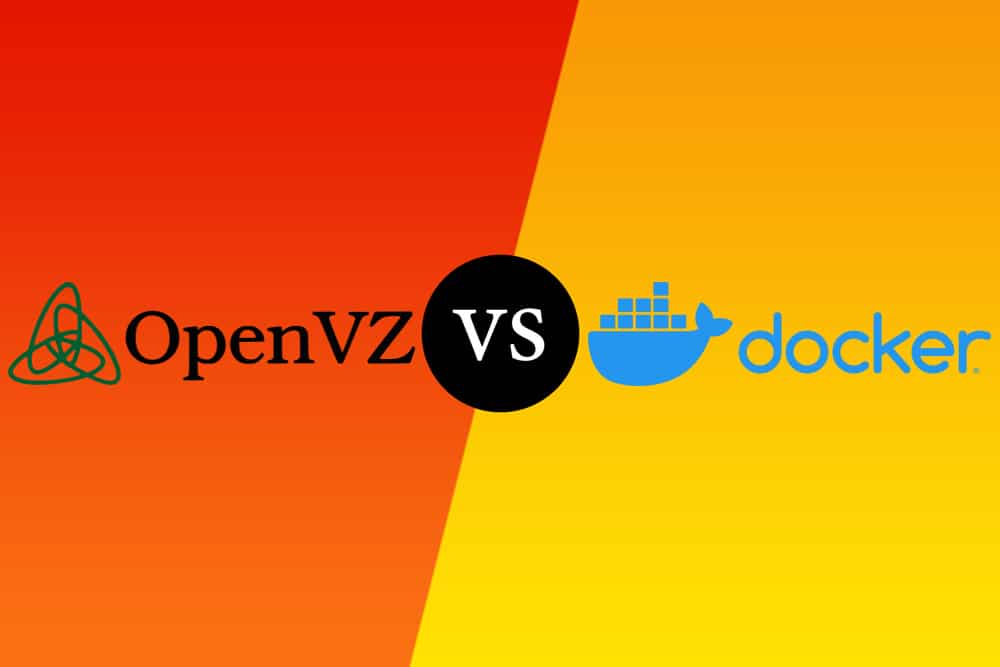
DISCLOSURE: This post may contain affiliate links, meaning when you click the links and make a purchase, we receive a commission.
Containerization is a crucial concept in the world of coding, and whether you’re an app or web developer, you’ll need to implement it at some point in your line of work. That is where programs like OpenVZ or Docker come into play, aiding you with the process of containerization.
However, since both are known to provide top-notch quality features to their users, many people need clarification as to which one is the right choice for them. Dive into this article as we give you a comprehensive comparison that will provide you with more clarity as to which service is best for your job.
What Do OpenVZ And Docker Do
OpenVZ and Docker are both software that help in the Containerization of your code. While Virtualization allows you to let your Server/PC share resources between all the Virtual Machines installed on it, Containerization helps you run multiple processes on one instance of an Operating System.
What this means is you could be running multiple servers/applications on the same window, which is otherwise hard to do. That is because when there’s no containerization, servers/apps will try to eat up each other’s resources and as a result, will slow themselves down.
With containerization, they’ll have their own share of computer resources in an imaginary block called a “container” and won’t have any knowledge about what’s going on in any other containers.
OpenVZ vs Docker
So now that you’re familiar with all the tech-savvy terms relating to these services, let’s talk about their differences. Keep in mind that one is not better than the other as a whole, but both these software may outperform each other in some aspects.
We hope that after you’re done reading this article, you’ll be sure which technology you’re going to proceed forward with:
- Perspective Of Both Technologies
Both of these services implement Containerization differently. OpenVZ focuses on making containers of multiple servers, while Docker makes instances on different applications. So if you’re willing to host or use multiple independent servers, OpenVZ would be the go-to for you, while if you’re looking to only test out applications, Docker would be a fitting choice.
- Platforms
OpenVZ is designed to work on Linux only, whereas Docker can be used on Windows, macOS as well as Linux. The vast platform compatibility offered by Docker makes it the clear winner if you’re looking to host your app or server that is not on Linux.
However, since OpenVZ specializes in Linux OS only, it is guaranteed to provide a better service and user experience for Linux users.
- Usability And Technical Support
Docker is pretty straightforward to use and provides you with a plethora of documentation and tutorials compared to OpenVZ. The extensive helping material allows you to master the app in almost no time. As far as Technical Support is concerned, Docker doesn’t provide you with much unless you’ve bought off their premium subscription.
On the other hand, OpenVZ’s support is available 24/7 and is completely free of cost. Sometimes, Docker’s official documentation may also not be up-to-date when compared with OpenVZ making it pretty difficult to solve road bumps while you’re using the software.
- Performance
In terms of performance, OpenVZ will always come out on top since one of its notable qualities includes that it is quite lightweight and not resource-heavy for the machine you’re using it on. With Docker, many users have reported high CPU usage when using the software. So if you have a low-end system, Docker wouldn’t be the right choice.
- Pricing
While both of these software are open-source, they both come with a pricing plan that allows you to get your hands on some premium features. There’s not much difference in their pricing since the most basic plan of OpenVZ costs $6/month while Docker bags $7/month.
OpenVZ’s next plan after their basic one is the “vBox 2” plan costing $10/month. Similarly, Docker’s next plan costs only $11/month. The linearity of all the packages doesn’t change much, but OpenVZ is the cheaper choice.
Verdict
While both the software are pretty solid tools to have, OpenVZ is recommended if you’re leaning more toward hosting a number of servers rather than only working with applications. It is also the optimal choice if you’ve decided to work on Linux since it has exceptional compatibility with the Operating System.
As far as their pricing is concerned, both are almost on the same page, but if you’re looking to save a couple of bucks, then OpenVZ is the choice for you. Here is a table that summarizes all the comparisons we’ve listed above:
| Features | OpenVZ | Docker |
|---|---|---|
| Perspective | Better for hosting multiple instances of server | Better for hosting multiple instances of an application |
| Customer Support | Most Technical Support is not in their free or basic plan | Provides support through phone and live chat |
| Pricing | $10/month for the most basic plan | $11/month for the most basic plan |
| Platforms Supported | Supports Linux only | Supports Windows, macOS and Linux |
| Performance | Lightweight so better for low-end systems | CPU intensive so requires a high-end system |
Conclusion
Both tools have features which they outweigh the other, so there’s no conclusive answer as to which tool is better. However, one might be better for you depending on your needs, and we hope that we’ve made that easier for you to recognize that from our comparison.



